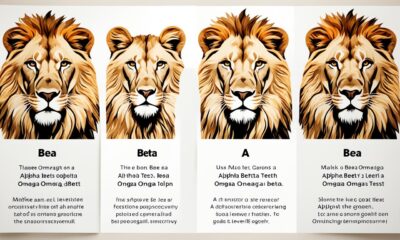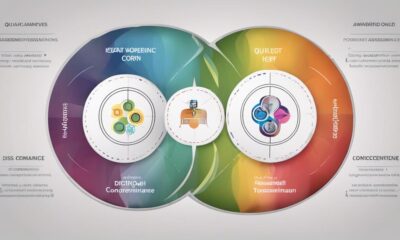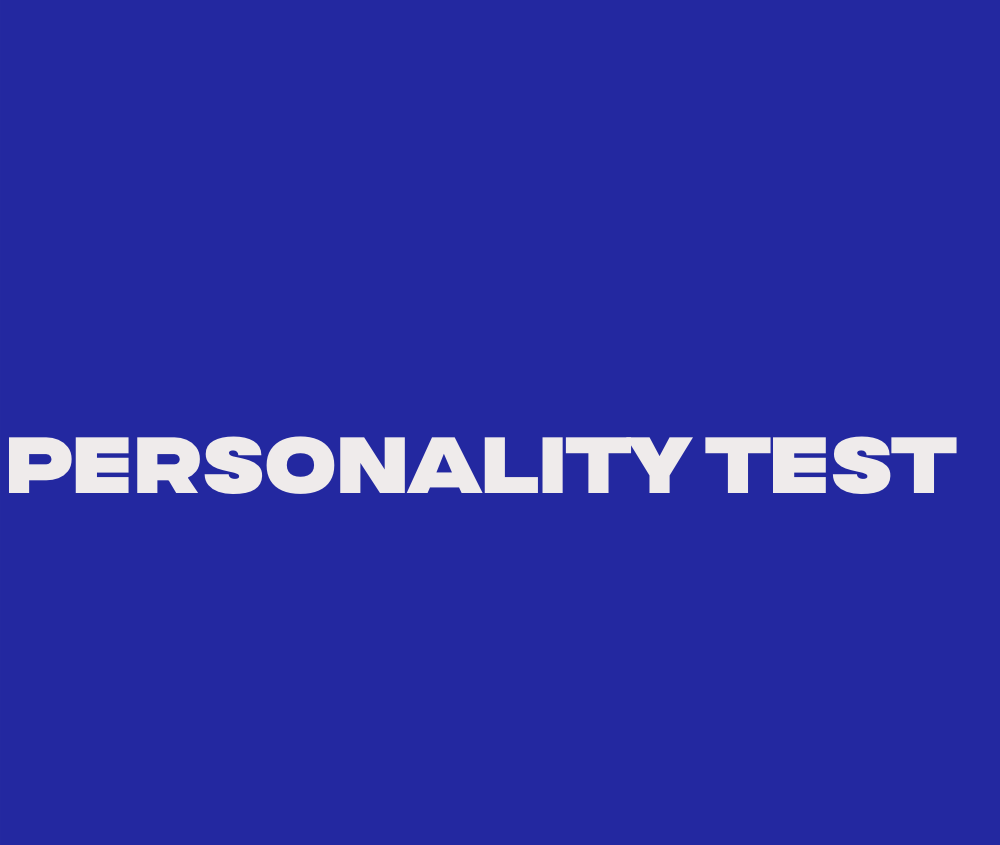Enneagram of Personality
Understanding ENTJ in the Enneagram: A Comprehensive Guide
Hovering between ambition and introspection, dive deep into the hidden layers of ENTJ personalities within the Enneagram, unlocking mysteries and transformational insights.

Exploring the ENTJ through the lens of the Enneagram, the old adage ‘know thyself’ frequently comes to mind. Yet, what truly resides within these ambitious and tactical personalities? In what ways do their Enneagram classifications influence their perspectives and behaviors?
By exploring the depths of the ENTJ personality within the Enneagram system, we uncover not just patterns but profound insights into their motivations and growth paths. Join us on this journey of discovery as we unravel the intricate tapestry of ENTJ personalities through the lens of the Enneagram, shedding light on their complexities and potentials.
Key Takeaways
- ENTJ Enneagram overview reveals core fears, desires, and motivations.
- Growth opportunities include developing empathy and embracing vulnerabilities.
- Famous ENTJs like Steve Jobs and Margaret Thatcher exemplify ENTJ traits.
- ENTJs prioritize growth, deep discussions, and relationships fostering mutual respect.
ENTJ Enneagram Overview
In delving into the realm of the Enneagram, the ENTJ Enneagram Overview serves as a crucial entry point for understanding how ENTJs interact within this intricate personality framework. As ENTJs, our Enneagram type provides a lens through which we can explore our core fears, desires, behaviors, motivations, relationships, traits, and overall personality. The Enneagram system offers valuable insights into how we perceive the world and approach various situations.
Understanding our Enneagram type as ENTJs is like unlocking a personalized guide to our inner workings. It delves into the depths of our psyche, unveiling the driving forces behind our actions and decisions. By recognizing our Enneagram type, we gain a deeper understanding of why we behave the way we do and how we can grow and evolve as individuals.
Exploring the ENTJ Enneagram types not only enhances our self-awareness but also provides a roadmap for personal growth and development. It allows us to harness our strengths, address our weaknesses, and cultivate healthier relationships both professionally and personally.
Core Fears and Desires

With core fears and desires serving as guiding forces, ENTJ Enneagram types navigate their paths with a blend of ambition, determination, and a quest for fulfillment.
The core fears of worthlessness, pain, and control drive ENTJs to strive for success and recognition, seeking autonomy and happiness along the way. These deep-rooted fears of feeling inadequate or losing control push ENTJs to excel in their endeavors, aiming for achievements that validate their competence and abilities.
The desire for recognition fuels their pursuit of leadership roles and impactful projects where they can showcase their skills. Simultaneously, the longing for autonomy and happiness propels them to seek environments where they can exercise authority and create conditions that align with their vision of success.
These core fears and desires significantly influence the behaviors and motivations of ENTJ Enneagram types, shaping their approach to challenges and interactions with others in their quest for personal and professional fulfillment.
ENTJ Growth Opportunities
To enhance our personal and professional development, ENTJs can embrace growth opportunities by tapping into our Introverted Feeling function to better understand and express emotions. Developing this aspect of ourselves allows us to connect with our feelings on a deeper level, fostering emotional intelligence and authenticity in our interactions.
Practicing empathy is another key area for growth for ENTJs. By considering others' perspectives and emotions in our decision-making process, we can build stronger relationships and make more well-rounded choices that benefit not only ourselves but also those around us.
Furthermore, building self-awareness and acknowledging our vulnerabilities can lead to significant personal growth. Engaging in reflective practices such as journaling or therapy can help us explore our emotions and motivations more deeply, leading to a greater understanding of ourselves and our behaviors.
Seeking feedback from trusted individuals and actively working on improving our emotional intelligence are also vital steps in fostering growth opportunities for ENTJs. By continuously striving to enhance our understanding of emotions and how they impact our interactions, we can continue to evolve and develop both personally and professionally.
Famous ENTJ Personalities

Several renowned ENTJ personalities have left a lasting impact on various fields through their strong leadership skills and visionary thinking. These individuals, such as Steve Jobs, Margaret Thatcher, and Bill Gates, have excelled in business, politics, and entrepreneurship, showcasing their strategic abilities and determination. Napoleon Bonaparte and Angela Merkel are also notable ENTJs who've made significant contributions to history, demonstrating their charismatic leadership styles and forward-thinking mindset.
- Steve Jobs: Known for revolutionizing the tech industry with Apple and his innovative products.
- Margaret Thatcher: The Iron Lady of British politics, remembered for her bold leadership as the UK's first female Prime Minister.
- Bill Gates: Co-founder of Microsoft, recognized for his philanthropy and entrepreneurial success.
- Napoleon Bonaparte: A military genius who reshaped Europe through his strategic prowess and vision.
- Angela Merkel: Germany's first female Chancellor, praised for her steady leadership and pragmatic approach to governance.
Relationship Dynamics
When exploring relationship dynamics for ENTJs, it becomes evident that they prioritize growth, learning, and shared long-term goals in their interactions. In friendships, ENTJs value deep discussions that stimulate personal growth and practical problem-solving. They seek relationships that offer freedom, leadership roles, and mutual respect.
ENTJs are drawn to individuals, such as ESTJs, who share their drive for success and efficiency. Open communication is crucial for ENTJs and ESTJs to navigate their relationships effectively. Within these dynamics, ENTJs often take on leadership roles, guiding the relationship towards common objectives.
They thrive in environments where they can engage in meaningful discussions, challenge each other intellectually, and work together towards achieving ambitious goals. By fostering a partnership based on mutual respect and a shared vision, ENTJs create relationships that are both fulfilling and productive, allowing them to grow personally and professionally.
Frequently Asked Questions
How Rare Is an ENTJ A?
ENTJ-As are a rare personality type, accounting for only about 3% of the population. Their assertive nature, confidence, and proactive approach set them apart.
Driven by purpose and natural leadership qualities, they excel in adapting to change and maintaining a positive outlook.
This uniqueness makes ENTJ-As stand out in various environments, contributing a valuable perspective to any situation they encounter.
Which Enneagram Is Most Common With Entj?
The most common Enneagram type associated with ENTJs is Enneagram Type 8. This type is characterized by traits such as assertiveness, decisiveness, and strength.
ENTJs and Type 8 individuals share qualities like leadership, dominance, and a strong desire for control. This compatibility is rooted in their mutual values of determination, success, and resilience.
Understanding this connection can provide valuable insights into the dynamics of ENTJs and Type 8s in various aspects of life.
What Is the Core Desire of Entj?
Our core desire as ENTJs centers around seeking success, recognition, and achievement. We're driven by the urge to excel, be acknowledged for our accomplishments, and unleash our full potential.
Autonomy, leadership roles, and making a significant impact in our fields are crucial to us. Pursuing personal growth, continuous learning, and long-term goals is how we fulfill our craving for excellence, effectiveness, and the ability to lead with authority and confidence.
What Is the Strongest Function of Entj?
We ENTJs excel with our dominant function, Extraverted Thinking (Te). This function allows us to efficiently organize and structure our environment, make logical decisions grounded in facts, and lead effectively. Te is the powerhouse behind our assertive, decisive, and strategic nature in leadership roles.
It's through Te that we navigate challenges, plan meticulously, and drive results with precision and confidence. It's undeniably our strongest tool in the toolbox.
Conclusion
In conclusion, exploring the intricacies of ENTJs within the Enneagram system is like peeling back layers of a complex onion. By understanding their core fears, desires, and growth opportunities, we gain a deeper appreciation for their unique traits and motivations.
Just as each layer of an onion adds depth and flavor to a dish, each aspect of an ENTJ's personality adds richness and complexity to our understanding of them. Embrace the journey of discovery and connection with these fascinating individuals.
Felicity, our Author, pens in-depth articles and guides that delve into the heart of personal discovery. Her narrative-driven approach weaves together theory, practice, and personal anecdotes, making the journey of self-exploration both relatable and inspiring. Felicity’s contributions help illuminate the path for those seeking a deeper understanding of themselves and their relationships.
Enneagram of Personality
Unveiling the Truth: Enneagram and Demonic Influences
Beneath the Enneagram's surface lies a mysterious link to demonic forces, challenging beliefs and perceptions – what secrets will be revealed?

As we delve into the complex depths of the Enneagram, a unique connection emerges between its teachings and the realm of spiritual influences. Some suggest that beyond the outward personality types, there are ties to darker forces, sparking debates on how well this widely used personality test aligns with religious convictions.
Could there be unseen forces at play, guiding our understanding of self through the Enneagram? Let's unravel the complexities and implications of this controversial topic, shedding light on the potential spiritual implications that may challenge our perceptions.
Key Takeaways
- Approach Enneagram cautiously due to its esoteric and occult origins.
- Exercise discernment regarding alleged demonic roots in Enneagram teachings.
- Testimonies warn of demonic influences shadowing Enneagram's authenticity.
- Safely navigate Enneagram by prioritizing discernment and spiritual awareness as Christians.
Enneagram Overview and Controversies
Enneagram, an esoteric typology for self-understanding and personal growth, has stirred controversy due to its roots in occult and New Age practices. Developed by Oscar Ichazo and Claudio Naranjo, the Enneagram's origins have been intertwined with spiritual beliefs that some consider suspect, such as Gnostic and New Age teachings. The integration of the Enneagram into Christian contexts, notably by figures like Richard Rohr, raises concerns about its compatibility with traditional Christian perspectives on spiritual growth.
Critics caution against the Enneagram, citing potential demonic influences and a departure from orthodox Christian teachings. The skepticism surrounding the Enneagram stems from its historical associations with non-biblical sources of wisdom and the mystical traditions of the occult. While proponents argue that the Enneagram can offer valuable insights into personality and behavior, questions persist about its alignment with core Christian doctrines and the potential risks of adopting practices rooted in New Age beliefs.
Types Vulnerable to Negative Influences

When exploring the Enneagram and its potential influences, individuals seeking spiritual enlightenment should be aware of the types vulnerable to negative impacts. Those on a journey of self-discovery through the Enneagram may inadvertently expose themselves to demonic influences.
Enneagram types that gravitate towards deeper meanings and esoteric knowledge could find themselves particularly susceptible to negative influences. Individuals who are curious about hidden truths or seek supernatural insights beyond conventional beliefs might unknowingly open themselves up to malevolent forces.
The allure of seeking answers outside of traditional paradigms can create a vulnerability to influences that aren't always benevolent. It's crucial for those delving into the Enneagram for spiritual enlightenment to approach with caution and discernment, as the quest for self-discovery can sometimes lead to encountering negative energies.
Being mindful of the potential for negative influences is essential for safeguarding one's spiritual journey and maintaining a balanced and protected exploration of the Enneagram's mysteries.
Discerning Spiritual Warfare and Enneagram
Exploring the potential implications of spiritual warfare in relation to the Enneagram demands a discerning approach due to the controversial associations and claims surrounding its origins and influences. When considering the Enneagram, it's essential to exercise discernment, especially concerning its alleged demonic roots and connections to occult practices like divination and witchcraft. Some critics suggest that the Enneagram's founders, Oscar Ichazo and Claudio Naranjo, received teachings from demonic sources, raising concerns about its spiritual implications.
To better understand this complex interplay, we must approach the topic with caution and diligence. The Enneagram's involvement in spiritual contexts has sparked debates about its potential connection to demonic influences and spiritual warfare. When navigating these discussions, it becomes crucial to seek wisdom and discernment, drawing upon the teachings of Jesus and the guidance of reputable spiritual leaders like Richard Rohr. By carefully evaluating the Enneagram through the lens of discernment, we can better grasp its spiritual significance and potential risks.
| Enneagram | Demonic Roots | Spiritual Warfare |
|---|---|---|
| Occult Origins | Divination | Witchcraft |
| Alleged Demonic Influences | Controversial Claims | Discernment |
Testimonies on Enneagram and Demonic Encounters

Amidst the debates surrounding the Enneagram's spiritual implications, testimonies detailing encounters with demonic influences offer a challenging perspective to consider. The Enneagram's origins have been shadowed by allegations of demonic roots, with founders accused of receiving wisdom from malevolent entities.
Testimonies caution against the Enneagram due to purported demonic connections, raising concerns about its associations with divination and witchcraft. These testimonies challenge the spiritual authenticity of Enneagram teachings, highlighting potential risks of engaging with a system believed to be influenced by demonic entities.
As we navigate the complexities of these testimonies, it becomes crucial to approach the Enneagram with caution, acknowledging the potential for encountering demonic entities and connections. The implications of these encounters on individuals exploring the Enneagram underscore the importance of discernment and awareness when delving into practices that may have deeper, darker ties to the spiritual realm.
Navigating Enneagram Safely as Christians
Considering the potential spiritual risks associated with the Enneagram, Christians must approach its teachings with careful discernment and a firm grounding in their faith. The Enneagram's origins in the New Age movement raise concerns about its compatibility with traditional Christian beliefs. Some critics warn against prioritizing Enneagram insights over the guidance of the Holy Spirit, highlighting potential conflicts between the two. The integration of the Enneagram into Christian teachings has sparked debates regarding its spiritual authenticity within Christian communities.
To navigate the Enneagram safely as Christians, it's essential to exercise caution and maintain a critical perspective on its teachings. Engaging with the Enneagram requires a deep understanding of one's faith and a willingness to discern any potential demonic influences that may be present. By approaching the Enneagram with humility and a spirit of discernment, Christians can evaluate its teachings through the lens of their beliefs, ensuring that they uphold the core tenets of their faith while exploring the complexities of the Enneagram.
Frequently Asked Questions
Is the Enneagram Biblically Based?
We believe the Enneagram's biblical foundation is questionable due to its origins in occult practices. There are concerns about potential conflicts with Christian beliefs and reliance on non-biblical sources. Further research and discernment are advised.
What Is the Controversy About Enneagram?
Controversy surrounds the Enneagram due to its alleged demonic ties and questionable origins. Critics raise concerns about potential spiritual dangers, claiming the Enneagram's development involved divination and New Age influences, challenging its credibility.
What Are the Spiritual Roots of Enneagram?
The Enneagram's spiritual roots intertwine with Eastern mysticism and New Age philosophies. Its development by figures like Oscar Ichazo and Claudio Naranjo hints at occult influences, sparking concerns over its authenticity and origins.
Is Enneagram a Paganism?
Yes, Enneagram has connections to paganism due to its origins and practices influenced by Oscar Ichazo and Claudio Naranjo. Critics suggest it's intertwined with pagan beliefs, raising concerns about its compatibility with Christianity.
Conclusion
In conclusion, navigating the murky waters of the Enneagram requires careful consideration and critical discernment. Understanding the potential dangers of demonic influences is essential for safeguarding our spiritual well-being.
By staying vigilant and seeking wisdom from trusted sources, Christians can engage with the Enneagram cautiously and confidently. Let's tread thoughtfully through this tangled terrain, taking heed of the hidden hazards that may lurk beneath the surface.
Eugene brings a fresh, dynamic voice to our platform as one of our talented Writers. Specializing in research-driven content, he explores the latest findings in psychology and personal growth, translating them into actionable insights for our readers. Eugene’s work is fueled by a curiosity about what makes us tick and a desire to help others unlock their potential.
Enneagram of Personality
Enneagram 5 Subtypes: A Comprehensive Guide
Curious to discover the captivating nuances defining Enneagram 5 subtypes?

Discover fascinating information as we delve into the Enneagram 5 subtypes, uncovering the nuanced differences that characterize each variation of this personality type.
While the overarching Type Five characteristics are well-known, the specific nuances of the self-preservation, social, and sexual subtypes offer a deeper understanding of how individuals navigate the world.
By unraveling these layers, we uncover a tapestry of traits that shape not only behaviors but also relationships and personal growth.
Curious to unravel the complexities within?
Key Takeaways
- Self-Preservation 5s are frugal, resourceful, and seek mental retreat for recharging.
- Social 5s value relationships with knowledge-seekers, prioritize clarity, and admire admirable qualities.
- Sexual 5s seek intimate connections based on trust, express intense emotions, and focus on meaningful relationships.
- Growth paths for all 5s involve balancing intellect with emotions, embracing true self, and facing Shadow for self-knowledge.
Overview of Enneagram Type 5 Subtypes
In exploring the Enneagram Type 5 subtypes, it becomes evident that understanding the distinctive characteristics of each subtype is essential for gaining deeper insights into how individuals of this type navigate their inner worlds and interpersonal connections.
Self-Preservation Fives, first of the subtypes, focus on maintaining physical and emotional well-being. They're adept at conserving resources and avoiding draining situations to ensure their own stability.
Moving to the Sexual subtype, these Fives seek intimate connections built on trust and emotional depth. Security and closeness are paramount in their relationships.
Social Fives, on the other hand, place emphasis on broader understanding, shared values, and knowledge exchange. They tend to gravitate towards relationships with like-minded individuals, valuing intellectual connections.
All three subtypes of Enneagram Type 5 share a tendency to idealize experts in their fields, setting boundaries to protect their inner worlds while seeking knowledge and connections that resonate with their core values.
Self-Preservation Enneagram 5 Traits

Prioritizing physical and emotional well-being, Self-Preservation Enneagram 5s exhibit a distinctive blend of frugality, resourcefulness, and self-sufficiency in managing their needs. These individuals lean towards introversion and are reserved in their interactions, often choosing to describe rather than express their emotions openly. They navigate life by creating their own mental 'castle,' a safe retreat from the demands of the world. Self-Preservation 5s diligently avoid draining situations, relying on their coping mechanisms to maintain a sense of stability and security. Let's delve deeper into the traits that characterize Self-Preservation Enneagram 5s:
| Traits | Description |
|---|---|
| Frugal | Careful with resources |
| Resourceful | Find creative solutions |
| Self-Sufficient | Independent in managing needs |
| Mental Retreat | Seek solitude for recharge |
| Avoid Draining Situations | Steer clear of overwhelming interactions |
Social Enneagram 5 Characteristics
Delving into the realm of Social Enneagram 5 characteristics reveals a focus on broadening understanding through knowledge and philosophy. Social Fives value relationships with individuals who share their thirst for knowledge, emphasizing transparency in interactions. They prioritize clarity and uphold significant principles in their pursuits, seeking relationships aligned with their values and centered on shared knowledge.
These Fives express a desire for specialness and admire admirable qualities in others, fostering connections that stimulate intellectual growth and philosophical exploration. By engaging with like-minded individuals, Social Enneagram 5s create a space where their intellectual curiosity can flourish, deepening their understanding of the world and themselves.
Their commitment to transparency and shared values in relationships underscores their dedication to genuine connections built on mutual respect and a mutual pursuit of wisdom. In essence, Social Enneagram 5s navigate the world through a lens of knowledge and philosophy, enriching their experiences through meaningful relationships and a shared quest for understanding.
Sexual Enneagram 5 Attributes
Exploring the realm of Sexual Enneagram 5 attributes sheds light on our deep yearning for intimate connections and a profound emphasis on trust within relationships. As Sexual Fives, we value trust and seek security and closeness in our interactions, often expressing intense emotions to establish meaningful bonds. Our romantic streak shines through as we prioritize openness, trust, and confidence in our one-on-one relationships.
Here are key attributes that define our approach to intimacy:
- Seeking intimate connections
- Valuing trust and security
- Expressing intense emotions
- Prioritizing openness and trust
- Focusing on building deep, meaningful connections
As Sexual Enneagram 5s, we thrive on forging emotional bonds and creating a space where genuine closeness and trust can flourish. Our commitment to establishing profound connections underscores our desire for authenticity and depth in relationships.
Growth Paths for Enneagram Type 5
In navigating the growth paths for Enneagram Type 5, a crucial aspect involves striking a balance between intellectual analysis and emotional connection to foster stronger and more fulfilling relationships. Opening up emotionally can be energizing for Type 5 individuals, helping them move away from detachment and avarice towards more meaningful connections. By embracing their true selves and relinquishing the need for excessive control, Type 5s can enhance their self-knowledge and self-respect, paving the way for personal growth and deeper relationships.
| Growth Paths for Enneagram Type 5 | |
|---|---|
| Detachment | Avarice |
| Learning to connect emotionally | Giving more to others |
| Embracing true self | Reduced need for control |
| Facing Shadow and pain | Higher self-knowledge and self-respect |
| Opening up emotionally | Enhanced personal growth |
Frequently Asked Questions
Is Enneagram Type 5 Rare?
Yes, Enneagram Type 5 is rare, with only around 5-6% of the population identifying as such. Type 5 individuals exhibit intense curiosity, a thirst for knowledge, and a strong desire for independence.
Which Enneagram Is the Hardest to Identify?
Which Enneagram type is the hardest to identify? Type Fours, with their intricate blend of emotions, individuality, and longing for significance, present a challenge in understanding their complex motivations. Their depth makes unraveling their core a delicate task.
What Subtype Is 5w4?
We are Enneagram 5w4, a subtype blending Type Five's introspection with Type Four's emotional depth. We crave knowledge with a creative twist, navigating life's complexities through analytical curiosity and imaginative self-expression.
What Are the Variants of Enneagram Type 5?
We explore Enneagram Type 5's variants: Self-Preservation prioritizes self-care; Sexual seeks deep connections; Social seeks broad understanding. Knowing these subtypes helps us understand our core Type 5 tendencies and navigate them effectively.
How Can I Determine My Enneagram Subtype as an INFJ?
As an INFJ, you can discover your Enneagram type by examining your core fears and motivations. Consider how you respond in times of stress or conflict, and how you relate to others. This self-reflection can help you determine your Enneagram subtype and gain insight into your personality and behavior patterns.
Conclusion
In conclusion, delving into the intricate realm of Enneagram Type 5 subtypes has unveiled a tapestry of insights into the complexities of human behavior and motivation.
By unraveling the distinct characteristics and growth paths of the self-preservation, social, and sexual subtypes, we gain a deeper understanding of ourselves and others.
Through embracing these primal tendencies and fostering self-awareness, we embark on a journey of personal growth and transformation, shining a light on the intricacies of the human psyche.
Eugene brings a fresh, dynamic voice to our platform as one of our talented Writers. Specializing in research-driven content, he explores the latest findings in psychology and personal growth, translating them into actionable insights for our readers. Eugene’s work is fueled by a curiosity about what makes us tick and a desire to help others unlock their potential.
Enneagram of Personality
Understanding Unhealthy Enneagram 2 Patterns
Sift through the hidden layers of Enneagram 2 behavior to uncover surprising motivations that blur the line between selflessness and self-preservation.

While exploring the complex web of negative Enneagram 2 tendencies, consider uncovering the layers of behavior that conceal genuine motives. Revealing these layers exposes a intricate mix of emotions and behaviors that could catch even the most introspective people off guard.
Unpacking the motivations driving these behaviors is crucial, as it sheds light on the intricate dance between selflessness and self-preservation. By exploring the depths of these patterns, we open doors to a deeper understanding of ourselves and those around us.
Key Takeaways
- Unhealthy Enneagram 2 patterns stem from a deep desire for validation and approval.
- Blurred boundaries lead to manipulative behaviors in pursuit of feeling indispensable.
- Neglecting self-care and boundaries fosters codependent dynamics in relationships.
- Acknowledging and addressing possessiveness and intrusiveness is crucial for positive transformation.
Unhealthy Traits of Enneagram 2
Unhealthy Enneagram 2 individuals often grapple with a deep-seated struggle to acknowledge their own needs, leading to behaviors characterized by selfishness, manipulation, and a desire for unwanted attention. At times, we find ourselves caught in a web of self-deception, where the lines between genuine care and seeking control blur.
The need to be indispensable can drive us to manipulate situations and people, all in the name of feeling needed and valued. This quest for validation through external means can result in intrusiveness, where boundaries become muddled in our pursuit of fulfilling the self-imposed role of the savior.
Our self-worth becomes intricately tied to how much we can give, often at the expense of our own well-being. This self-abnegation can lead to a messiah complex, where we believe only we can solve others' problems. In relationships, this can manifest as a form of addiction, where we seek validation through fixing others, resorting to subtle forms of manipulation to maintain a sense of control.
Motivations Behind Enneagram 2 Behaviors

As Enneagram 2 individuals, our behaviors are often driven by a profound yearning for validation and approval from those around us. This deep-seated need for validation can lead us to employ manipulative tactics to ensure we're noticed and valued. The fear of being unloved or feeling unworthy plays a significant role in our motivations, pushing us to prioritize others' needs over our own.
We may believe that by being indispensable to those we care about, we can maintain a sense of self-worth. This drive to be needed can sometimes manifest in unhealthy patterns where we struggle to set boundaries and assert our own desires. Addressing these underlying motivations is crucial in breaking free from these detrimental cycles and fostering healthier relationships based on genuine connections rather than control or validation.
Impact on Relationships
In relationships, Enneagram 2 individuals may unknowingly exhibit possessive and manipulative behaviors that stem from their deep-seated need for validation and approval. This can lead to a range of negative impacts on their relationships, such as:
- Neglecting Boundaries: Enneagram 2s may struggle to respect personal boundaries, resulting in codependent dynamics that hinder genuine connections.
- Projecting Needs: By projecting their own unmet needs onto others, Enneagram 2 individuals can become manipulative in their attempts to seek validation.
- Controlling Behavior: Unhealthy Enneagram 2 patterns may manifest in controlling behaviors that erode trust and intimacy in relationships.
- Destructive Manipulation: Engaging in manipulative behaviors can damage the foundation of relationships, leading to emotional turmoil and resentment.
- Chronic Exhaustion: The constant need to please others and give beyond their capacity can result in chronic exhaustion, emotional fatigue, and a deep sense of dissatisfaction.
Understanding these unhealthy patterns is crucial for Enneagram 2s to cultivate healthier and more fulfilling relationships.
Developing Self-Awareness

Developing self-awareness involves actively recognizing and reflecting on manipulative tendencies and controlling behaviors within Enneagram 2 individuals. Understanding the personal motives that drive our actions is a crucial step towards self-awareness in unhealthy Enneagram 2 patterns.
By delving into the underlying reasons for seeking validation and attention through manipulation or excessive helping, we can begin to unravel the complexities of our behavior. It's essential to acknowledge the detrimental impact of possessiveness and intrusiveness on our relationships. Through self-awareness, we can start to see the ways in which these traits manifest and work towards addressing them.
Self-awareness empowers us to acknowledge our own needs and prioritize self-care for personal growth and well-being. By taking the time to reflect on our behaviors and motivations, we can pave the way for positive change and transformation.
Embracing self-awareness not only benefits us individually but also enriches the quality of our relationships and interactions with others.
Establishing Healthy Boundaries
Recognizing personal limits and prioritizing self-care are essential steps for Enneagram 2 individuals in establishing healthy boundaries. Enneagram 2s often struggle with setting boundaries due to their innate desire to help and please others. Here are some key points to consider when working on establishing healthy boundaries:
- Setting clear boundaries helps prevent overextending oneself in relationships, fostering a sense of balance and well-being.
- Understanding the importance of boundaries is crucial for maintaining healthy dynamics with others and avoiding burnout.
- Establishing boundaries allows for a more harmonious balance between giving and receiving in relationships, promoting mutual respect.
- Maintaining boundaries isn't selfish; it's necessary for the overall well-being and self-preservation of Enneagram 2 individuals.
- Prioritizing self-care alongside giving to others is vital for achieving a sustainable and fulfilling life that honors your needs as much as you honor those of others.
Frequently Asked Questions
What Does an Unhealthy Enneagram 2 Look Like?
An unhealthy Enneagram 2 may exhibit manipulative behaviors to seek attention and control in relationships. They struggle to recognize their own needs and value themselves based on their roles in others' lives.
Can Enneagram 2 Be a Narcissist?
Yes, Enneagram 2 can exhibit narcissistic traits when unhealthy. Seeking excessive admiration and exploiting others for personal gain are behaviors that may emerge. Understanding this overlap helps in recognizing and addressing these detrimental patterns in relationships.
Where Does Enneagram 2 Go in Unhealth?
When Enneagram 2s slide into unhealth, they may become manipulative, seeking validation through helping others but feeling unappreciated. Boundaries blur, intrusiveness rises, and control creeps in. Criticism and aggression replace nurturing tendencies, leading to toxic dynamics.
What Do Enneagram 2s Struggle With?
We struggle with setting boundaries, often putting others' needs before our own. Neglecting self-care, seeking validation through helping, and fearing unworthiness are common. When unappreciated, manipulative behaviors may surface, stemming from a deep desire for love and acceptance.
How Do Childhood Wounds Impact Unhealthy Enneagram 2 Patterns?
Understanding childhood wounds impact in enneagram can help identify the root of unhealthy Enneagram 2 patterns. Childhood neglect or feeling unloved may lead to a constant need for validation and approval. This can result in overextending oneself to others, leading to burnout and resentment. Recognizing this connection is crucial for personal growth.
Conclusion
As we navigate the intricate web of unhealthy Enneagram 2 patterns, we must remember that self-awareness and setting boundaries are key to our growth.
By recognizing our tendencies towards possessiveness and manipulation, we can strive to create healthier relationships and prioritize our own well-being.
Just as a gardener tends to their garden, we must nurture ourselves in order to flourish and bloom into our true potential.
Eugene brings a fresh, dynamic voice to our platform as one of our talented Writers. Specializing in research-driven content, he explores the latest findings in psychology and personal growth, translating them into actionable insights for our readers. Eugene’s work is fueled by a curiosity about what makes us tick and a desire to help others unlock their potential.
-

 Enneagram of Personality4 weeks ago
Enneagram of Personality4 weeks agoEnneagram Test: Printable Version for Easy Self-Discovery
-

 Personality Exploration1 month ago
Personality Exploration1 month agoDiscover Your Traits with Atomic Habits Personality Test
-

 Personality Insights2 months ago
Personality Insights2 months agoAlpha Vs Sigma: Understanding the Key Differences
-

 Personality Exploration1 month ago
Personality Exploration1 month agoAlpha Beta Omega Personality Test Explained
-

 Personality Exploration1 month ago
Personality Exploration1 month agoExplore Your Psyche: Carl Jung Archetypes Test
-

 DISC Assessment2 weeks ago
DISC Assessment2 weeks agoUnderstanding Your DISC Assessment Results: Meaning and Interpretation
-

 Self-Understanding2 months ago
Self-Understanding2 months agoDiscover Your Traits with Our Personality Test
-

 Personality Exploration1 month ago
Personality Exploration1 month agoDiscover Your Traits: 3 Animal Personality Test

















